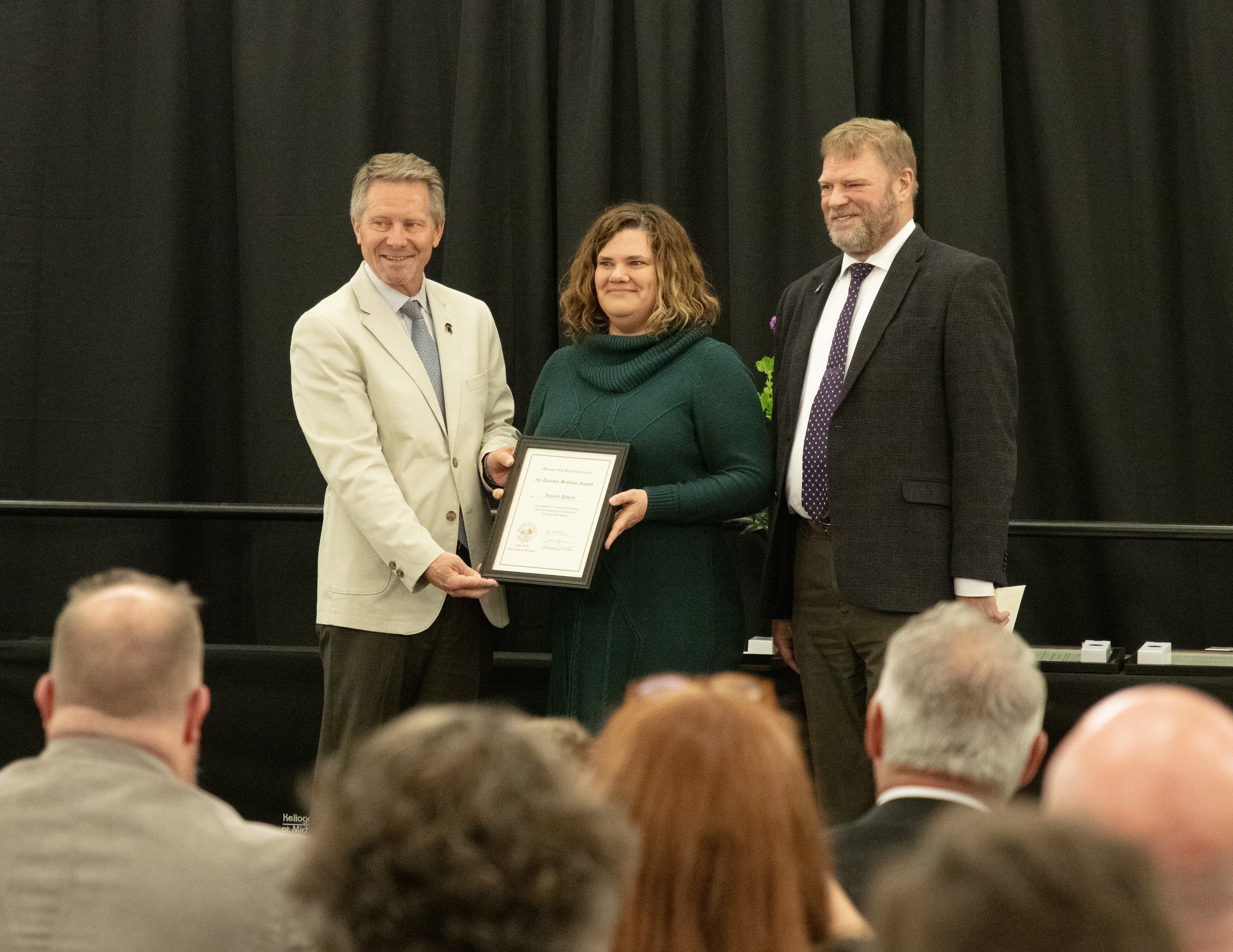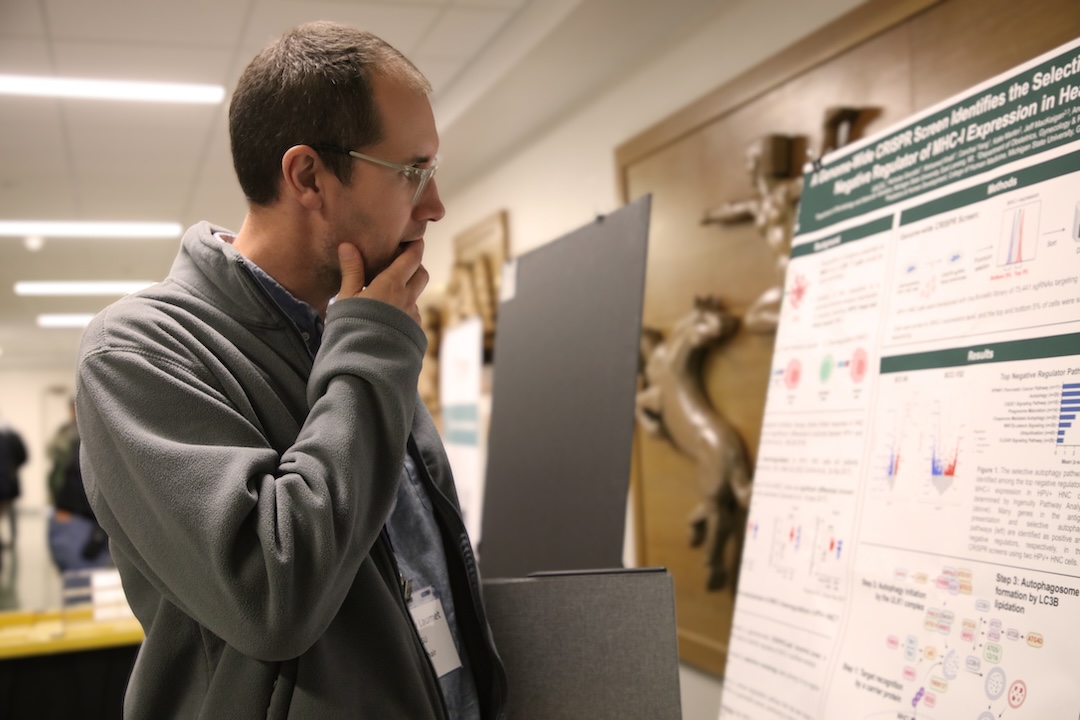
Jennifer Doherty believes that students learn best from their mistakes.
In fact, the assistant professor in the Department of Physiology and Lyman Briggs College allows her students to retake any exam without penalty.
“Students have multiple chances to succeed in my courses,” Doherty said. “That does mean I have to rewrite multiple exam questions but that’s okay. I believe that for students to succeed, they have to understand what they are being taught and not just memorize it.”
Doherty’s innovative approach to conceptual understanding and mechanistic reasoning was recently honored during MSU’s 2024 All-University Awards. Doherty was selected as a recipient of the Teacher-Scholar Award. These awards are presented to faculty who have earned the respect of students and colleagues for their devotion to and skill in teaching.
“Being recognized for all the work that I put into understanding students but then also crafting an environment for students to succeed in is really important to me,” said Doherty who came to MSU in 2022. “I try to bring a lot of my research into my teaching so to be recognized by your peers and your students is really great.”
A self-described discipline-based education researcher, Doherty says every student perceive and internalize concepts differently. Her research aims to understand the intricacies of student cognition which can be a road map to effective teaching.

“A big part of my work is understanding the resources students activate when they make decisions,” said Doherty adding that this mechanistic reasoning can be influenced by their lived experiences and taught knowledge. “All students bring a lot of knowledge. They’ve had rich lives and taken many courses so they’re activating all these knowledge pieces. That’s important for teachers to know. If you can predict the kinds of things students know when they come into your classroom, you can design your teaching to cater to it and help them activate the resources they need to succeed.”
Furthermore, Doherty says that prioritizing conceptual comprehension and mechanistic reasoning has the potential to create a more equitable educational landscape, particularly benefiting students from marginalized communities.
“Studies have shown that some students leave science, including underrepresented students, because we just ask them to memorize a bunch of facts without a lot of support and this is this is not what they're looking for,” she said. “When you focus on mechanistic reasoning and not memorization, it can help level the playing field among students who maybe had more privileged backgrounds versus first-generation college students. That's what we want.”



